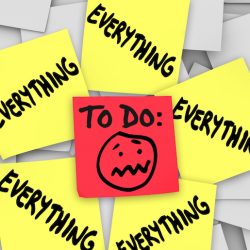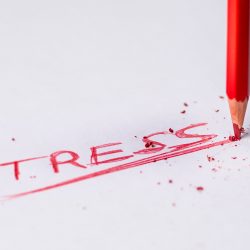Mental disorders and bipolar disorders
Bipolar disorder is characterized by alternating periods of extremely high mood (mania), extremely low mood (depression), and periods of normal mood. The disorders usually begin in the teenage years, between the ages of 20 and 30 or between the ages of 30 and 40.
Heredity, social factors or disorders in the neurotransmitters of the brain (dysregulation of serotonin, norepinephrine and dopamine) can indeed be at the origin of these pathologies. The lifetime prevalence is almost 4%. The rates of bipolar I disorder are almost equal between men and women.
Psychosocial factors can be involved. Stressful life events are often associated with the onset of symptoms and subsequent aggravations, although the link between the cause and the consequences has not yet been definitively established.
There are several types of bipolar disorder :
-
Type I bipolar disorder:
It is defined by the alternation of full – fledged manic attacks and major depressive episodes. It frequently begins with depression. The interval between depression and manic access can nevertheless be expressed in months or years.
-
Type II bipolar disorder:
It is determined by a history of at least one major depressive episode and at least one hypomanic episode . Hypomania is actually a condition in which the hypomanic is close to manic arousal , it is a milder form of mania . This state is also compared to euphoria.
The concept of hypomania was first described by Mendel in 1881:
- Mood variations: from cheerfulness to sadness and even hostility
- Increased creativity and sociability
- Gain energy, decrease in sleep, among others.
-
Cyclothymia:
The person has recurrent episodes of hypomania as well as symptoms of depression . Most access lasts for less than 3 months. Cycle length tends to decrease from episode to episode over time.
The risk factors :
Intrinsic :
- Heredity
The mutation of several genes is therefore correlated with the onset of bipolar disorder.
- Hemochromatosis
Of genetic origin, hemochromatosis results in elevated serum iron levels. The excess iron ultimately catalyzes the Fenton reaction which produces free radicals. It is associated with significant oxidative stress, which affects all organs, including the brain.
Extrinsic :
- Trauma in childhood
It can be mistreatment, sexual abuse but also the loss of loved ones, etc.
- Stress, burnout
Stress disrupts hormonal circuits and neurotransmitters (high cortisol level then cortisol depletion in the case of burnout). It is linked to depression and induces a decrease in immunity, which can make the person more sensitive to infectious agents.
- Cannabis use
According to a 2019 meta-analysis, 24% of people with bipolar disorder use cannabis. This correlation is higher among young, single men, sometimes with a lower level of education. This fraction of bipolar people also experience early onset of symptoms, use of addictive substances (tobacco, alcohol, etc.) and a high rate of suicide attempts.
Naturopathic advice to reduce bipolar crises :
-
Secure the support of loved ones
This phase is indeed crucial to prevent larger episodes.
-
Group therapy
It is often recommended for people with bipolar disorder and their spouses; they learn generalities about bipolar disorder, its social consequences as well as the central role of mood stabilizers in treatment.
-
Individual psychotherapy
It also allows you to better manage daily problems and to adapt to your new way of life.
-
Supplementing with vitamins B6, B9 , B12 and S-adenosyl-methionine (SAM)
Bipolar people have lower levels of folate or vitamin B9, vitamin B12 and SAM than the general population, due among other things to a genetic cause. SAM and group B vitamins are used in the depressive phase of the disease.
According to a 2016 study conducted on a sample of people with bipolar or other psychiatric conditions, vitamin D deficiency is 4.7 more common in these people. According to a hypothesis proposed in 2015, insufficient levels of vitamin D and omega 3 fatty acids, in combination with genetic factors, at certain key periods of the individual’s development, would lead to a dysfunction of the metabolism of serotonin. This could be one of the explanatory mechanisms for a too low level of serotonin in bipolar disorder and depression. Supplementation with omega 3 (EPA and DHA) and vitamin D improves symptoms in people with bipolar disorder during mania and depression . It would also increase the duration of the phases of remission.
-
Adopt a regular rhythm of life
Favoring respect for sleep time, physical activity, the avoidance of intoxicants such as alcohol, coffee, tobacco, cannabis or other drugs, are in particular as many basic recommendations useful for stabilizing the disease.
-
Think about hydrating
In case of bipolar disorder, besides diet, hydration should not be neglected. Water is the best drink; it provides for our water needs. Forget about caffeine and excess alcohol, as these are also responsible for mood swings. Tea on the other hand, more specifically chamomile, has been proven to be a natural alternative treatment for anxiety and insomnia.
-
Supplementing with magnesium
An essential mineral, it has many health benefits and contributes to muscle and neuronal function.
-
Do selenium cures
Selenium is an essential mineral, which is believed to maintain brain health. The latter finds its source in seafood, oleaginous fruits, offal or poultry.
-
Supplementing with tryptophan
This amino acid composing proteins seems to improve the quality of sleep, which would help remedy insomnia, generally found in bipolar disorders. A precursor of serotonin, it makes it possible in particular to limit the impact of depressive states. Rapid depletion of tryptophan is a method whose effect is a reduction in symptoms of mania.
-
Treat yourself to some dark chocolate
For the mood, the consumption of dark chocolate, by its composition in magnesium, seems to “calm the spirits”.
-
Supplementing with chromium
-
A choline intake
-
Supplementing with probiotics
-
Acupuncture
-
Mindfulness meditation
Food side :
To promote :
- Vegetables
- Herbs
- Spices
- Mushrooms
- Fruits
- Dried fruits
- Oilseeds
- Legumes
- Cereals :
- with gluten (whole and organic)
- gluten free
- breakfast
- Seeds
- Dairy products
- Soybeans and derivatives, tofu
- Vegetable drinks
- Vegetable creams
- Algae
- Condiments
- Tubers
- Germinated seeds
- Vegetable fats
- Lactofermented products
- Tea
- Plant protein concentrates
- White meats
- Lean fish
- Fatty fish
- Shellfish
- Eggs
To limit :
- Red meat
- Animal fat
- Condiment
- Cereal products (white, incomplete)
- Coffee
- Pastry / Viennese pastries
- Breakfast cereals
- Cold cuts
- The drinks
- Processed and industrial products
- Food additives
- Alcohols
- Fried foods, tempura, breadcrumbs
- Fat
- Low-fat foods
- Refined sugar and complex carbohydrates (consumption of sugar directly impacts the mood of subjects. In fact, irritability is a side effect caused by sugar. The impact of sugar on blood sugar can have repercussions on the functioning of the patient. brain. Too high blood sugar exacerbates symptoms of fatigue, irritability, insomnia, intense thirst, loss of attention and depression)
Which plants for bipolar disorder ?
The hypericin and hyperforin , identified active substances in the St. John’s Wort, would act on the modulation of several neurotransmitters serotonin, dopamine and norepinephrine. St. John’s Wort has an anti-inflammatory effect, modulating interleukin-6, an inflammation mediator.
The plants likely to trigger a manic episode are: St. John’s Wort, Ma-Huang, Gingko, Ginseng, Rhodiola. In the reported cases, these plants were used in high doses for St. John’s Wort, or with concomitant use of medication or recreational drugs. Be careful, however, some plants cause many drug interactions and have several precautions for use. In any case, the advice offered in this article is not likely to substitute on their own for a consultation or a diagnosis formulated by a doctor or a health professional, the only ones able to adequately assess your state of health, as well as your degree. of bipolarity during an individual consultation.







